2. Competing World Views (i)
How do we position and compare a Biblical Christian world view against the apologetics frameworks of other belief systems?
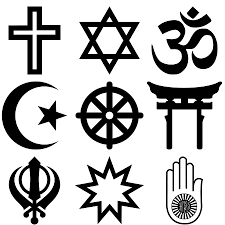
A Western world view is not a Christian world view, even though the "West" (as usually understood, though even that term is usually laden with assumptions, many of which are out of date) has been strongly influenced by a Judeo-Christian "heritage".
Nor is the purpose of world evangelism to make the ethnes of the world Western in outlook. The Christian faith is not a Western construct. Jesus Christ was not Western.
David A Noebel (The Battle for Truth, Harvest House Publishers, Eugene Oregon, 2001) suggests we compare world views through the lenses of theology, philosophy, ethics, biology, psychology, law, politics, economics and history.
We will overview (and expand on) a number of systems this way, before turning to other lenses ("seeing through their eyes") that help us see what is going on and then assess what a Christian world view does and how to put it into practice in a transformation way.
Transformation is essential. A Christian world view is not simply a matter of maintaining tradition, or zealously imitating a model of "best practice". The Bible reminds us that zeal without knowledge is not good (Proverbs 19:2; Romans 10:2). Head knowledge alone is not enough; only knowledge combined with a heart change will overcome prejudices and false beliefs we may have adopted and enable us to see life and people through the eyes and life of Jesus Christ. Nothing less than this is a genuine Christian world view.
The first two belief systems we will look at, Islam and Secular Humanism, are poles apart, in many respects, but are the way hundreds of millions of people believe.
| World View | Christianity | Islam | Secular Humanism |
|---|
Source/s
Where do our dogmas come from? |
Bible, church tradition
The Word became flesh. |
Koran, the word located in a book, in Arabic; hadiths (agreed sayings attributed to Mohammed);tradition |
Humanist Manifestos I, II and III |
|---|
Theology
What about God/s? |
Monotheism
Christ was the fullness of the godhead bodily, Colossians 2:9 |
Monotheism |
Atheism
Humans are in control. |
|---|
Philosophy
What is real, meaningful? |
Supernaturalism
Christ is the Logos, the Word of God, made flesh, the meaning and key |
Koran, tradition beliefs, "submission" to God |
Naturalism |
|---|
Ethics
What's right? |
Absolutes
Christ the True Light |
Absolutes
Compliance |
Relativism |
|---|
Biology
What about Life? |
Creation
Christ is our life |
Creation |
Darwinian evolution |
|---|
Psychology
What about Human Nature? |
Mind/body
He renews our mind
We are to love Him with our minds. |
Submission to God above all else; predestination |
Self-actualisation |
|---|
Law
Who makes the rules? |
Biblical & natural law, authority delegated to human rulers
Law of the Spirit of Life in Christ |
Shari'a - if achievable |
Positive law |
|---|
Politics
Who is in charge? |
Focus on Kingdom of Heaven
God is ultimately in charge.
Work for justice, freedom, order in this world, then eternity
Submission to Christ as king of Kings and Lord of Lords |
Focus on earthly kingdom
Submission to Allah and the consensus of the umma (the world-wide community of Muslims) |
World government, Westphalia, national sovereignty, international law |
|---|
Economics
What about resources? |
Stewardship
God owns all things. Christ emptied Himself and set example, Jubilee concept |
Stewardship, alms; Shari'a banking, taxes on non-Muslims; petrodollars in some countries |
Capitalism, socialism, materialism |
|---|
History
Can we interpret the past and the current state of the world for clues as to the future |
Divine creation (Trinitarian), the Fall, revelation, redemption, second coming |
Institution of Islam globally (Dar al Islam vs Dar al Harb), Mohammed as the last prophet, final judgement; predestination, dealing with historical reversals |
Evolution. |
|---|
Christianity - Synopsis
Christianity is based (in a small nutshell) on the beliefs that:
- God is the creator of all; He gives purpose
- God man Adam and Eve, He set the rules, but they chose to sin
- They were created for life, but sin led them ultimately to death (physical and spiritual)
- Adam and Eve sought fulfilment in pleasure and things, but only relationship with God gave meaning
- God revealed Himself and His ways to humanity over many generations through his dealing with the human race and prophets
- He finally (in His timetable for human history) became incarnate (lit. in flesh) in the God-man Jesus Christ
- Christ died for our sins, was buried and raised the third day
- He returned to heaven, to the right hand of God
- God sent the Holy Spirit through Christ; the church was born on the Day of Pentecost
- The church has a mandate of world evangelism and living relationally with God (Kingdom living)
- Christ will return to judge the world and usher in a new order; Christians will live with Him forever. That will be the climax of human history.
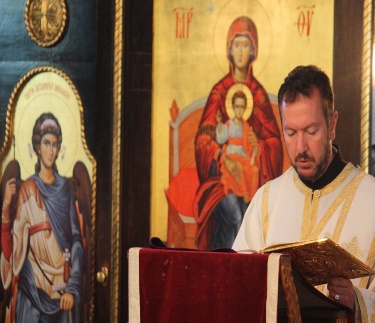
"Apostles Creed" (an example of an early statement of Christian belief)
I believe in one God, the Father almighty, maker of heaven and earth, of all things visible and invisible.
And in one Lord, Jesus Christ, the only begotten Son of God, born of the Father before all ages. God from God, Light from Light, true God from true God, begotten, not made, one in being with the Father; through Whom all things were made.
Who for us men and for our salvation came down from heaven. And he was made flesh by the Holy Spirit from the Virgin Mary, and was made man.
He was crucified for us under Pontius Pilate; suffered, and was buried. On the third day He rose again according to the Scriptures; He ascended into heaven and sits at the right hand of the Father.
And He will come again in glory to judge the living and the dead, and of His kingdom there shall be no end.
And in the Holy Spirit, the Lord and giver of Life, Who proceeds from the Father and the Son.
Who, with the Father and the Son, is adored and glorified: Who has spoken through the Prophets.
And one holy, catholic and apostolic Church.
I confess one baptism for the remission of sins. And I look for the resurrection of the dead, and the life of the age to come. Amen.
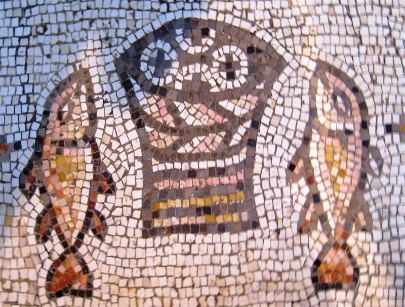
Islam
Islam is in the news every day, often for the wrong reasons: Islamic State atrocities in the Middle East (supported by foreign fighters from dozens of countries around the world), terrorist attacks in France, England, the USA and Australia, home grown or imported "lone wolf" activities in mosques and Islamic communities in the West, seemingly reluctance on the part of sheikhs/imams to denounce violence committed in the name if Islam, Al Qaeda, honour killings, conflict in Iraq and Afghanistan, Boko Haram in Nigeria, Salafist ("back to basics") extremism, debates about the meaning of "jihad", and potential nuclear proliferation in Iran.
For many Muslims, renewal of religious commitment and religious loyalties are more important than nationality or social allegiances. (Christians believe the world order has a use-by date, but the Christian mandate is not to conclude the global order; that is God's prerogative.)
Christians must understand the basics of Islam and how to respond in a Biblical way, and be deliberately watchful not to be highjacked by hostile media reporting.
History Precis:
Mohammed was born in polytheistic Mecca in 570 AD. He worked as a trader, meeting Jews, orthodox and heretical Christians in the process.
At 25 he married a wealthy 40 year old widow named Khadija. He had multiple marriages after that but only one child (Fatima).
From around the age of 40, he claimed revelations (or "recitations") from "Gabriel".
Mohammed's call for monotheism and submission to God (Allah, in Arabic) was opposed by the Meccans.
Mohammed "fled" with his followers to Medina in 622 (this flight, or hijra, marked the beginning of the Muslim calendar). He eventually defeated the Meccans, smashed their idols and established Islam. The new religion was divided after his death in 632. Bitter arguments and subsequent military conflicts over leadership succession in the growing Muslim movement led to splits into Sunni (leadership from within the community) and Shia (leadership by Mohammed's family line) sects; other sects and schools, such as the Allawites, Sufis, Druze, Wahabis, Malikis, Ahamadiya, etc., came later.
Islam spread from Mecca through the Middle East, along North Africa, into Europe (starting with Spain in 711), France (where it was turned back) and (later) into Eastern Europe. Islamic dynasties shifted from Mecca to Damascus, to Baghdad. Jerusalem was captured by Musllim Seljuk Turks, leading (inter alia) to the Crusades (from 1097), the fall of Christian "Orthodox" Constantinople (originally established by Constantine, as his capital city, in 330) in 1453; the Moors were expelled from Spain in 1492; the Turks were stopped at Vienna in 1683; the Ottomans (in Turkey) ruled Islam until the empire fell after Turkey joined Germany in WWI.
Leadership of the Islamic community is largely from Saudi Arabia (Sunni) and Iran (Shi'ite).
What makes a Muslim?
- "Shahada" - the confession of faith
- prayer ("salat"); 5 times/day, facing Mecca
- alms-giving ("zakat"); 2½% = social action
- fasting during Ramadan (the 9th month)
- Hajj (pilgrimage to Mecca, the birthplace of Mohammed), at least once
- for many Muslims, a 6th, Jihad (Holy War)
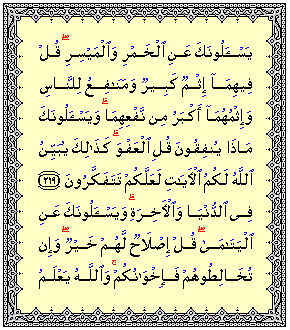
The Muslim high level world view
- One God, Prophet, Religion
- world-wide domination and conversion the "will of God"
- prefer Shari'a government
- faith/daily life intertwined -mosque/state not separate
achieved by:
- political (sometimes military) measures
- population growth
- missionary endeavours (eg students in Western universities)
- using freedoms in the West (eg anti-vilification laws, demand tolerance > contradiction)
- moral standards
- appeal of equality, brotherhood
- fear of punishment for apostasy
- eschatology
Islam is an external, "works"-based religion.
Felt needs of individuals
- do not believe they can know God
- do not know whether they have peace with God
- no assurance of forgiveness of sin
- no assurance of heard/answered prayers
- no assurance they will go to Paradise
- do not know whether their lives please God
- have to rely on their own strength to follow commandments
- most cannot read the Koran in Arabic (translations are unacceptable)
- do not know how to conquer evil they know exists around them
- believe that their zeal and commitment count with God (exemplary but cf Romans 10:2-4, Matthew 5:20)
Christians believe that Muslims, like other non-Christians, are "without God and without hope in the world" (Ephesians 2:12 cf 1 Peter 3:15)
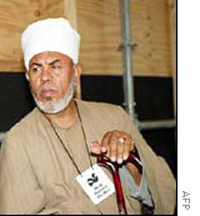
In Common with Christians
- both are Monotheistic - La Allah illa Allah ("There is no God but God.")
- God is creator; He is merciful, just and omniscient
- belief in Old Testament characters (eg Adam, Abraham, Isaac, Jacob, Lot, Joseph, Moses, Aaron, David, Solomon, Elijah, Elisha, Jonah, Ezekiel, John), but a different spin
- Jesus born of Virgin Mary, performed miracles, will return
- submission to God; faith; prayer; life commitment
- world-wide "community" of believers ("umma")
- a coming Day of Judgment
- life after death, angels, demons
- eternal reward for the faithful, Hell for unbelievers
Points of departure
Muslims do not believe that:
- Jesus was God/Son of God - Islam teaches that Jesus was "prophet", who promised a "paraklete" (Mohammed) and was superseded
- Jesus was crucified, died, rose again
- God could have humbled Himself, become a man, a sacrifice
- the Gospel is the original record
Inaccurate versions of OT stories, eg.
- Ishmael offered as sacrifice
- Haman a servant of Pharaoh
- baker in Joseph's dream crucified
Misunderstandings
Muslims associate Christians with:
- excess of the Crusades; "loss" of Spain; Palestine; massacres in Bosnia (tend to overlook Islamic excesses throughout history; Islamic State actions may be an exception))
- Western mores (immorality, drug addiction, alcoholism, commercialism of religion, secularism)
- Western support for corrupt leaders, eg Shah, Mubarak, Saudi Royal Family
- idolatry (Mariology, statues in churches)
- polytheism (God + Mary + Jesus = Trinity)
- lukewarm commitment to God
Claim Jews/Christians changed Scriptures
Many Christians believe (or focus on):
- racial and cultural stereotypes, eg
- "Mohammedanism"
- polygamy widespread
- veil dress code
- stereotypes, eg Muslims are "fundamentalists", support terrorism, suicide bombers
Limits of Islamic theology:
- hyper-predestination
- emphasis on the external, temporal (cf John 3:6)
- contradictions between claims and practice, eg treatment of women & non-Muslims
- limited to Arabic language (Koran)
- claim God "compassionate, merciful", but legalistic, duty, ritual (cf Romans 3:26)
- no theological concept of God's
- presence
- grace
- kindness and love
- mercy
- transforming power
- promises, hope (see Titus 2:11, 3:4-7)
Christians need to:
- understand Islam and its global agenda
- avoid getting caught up in popular Islamophobia; this will never win anyone
- seek out Muslims as they would any other non-Christian
- love them as God loves them
- show patience, not hostility
- model their own faith, "submitted" to God
- use the Bible, as God's Word
- model genuine worship of God
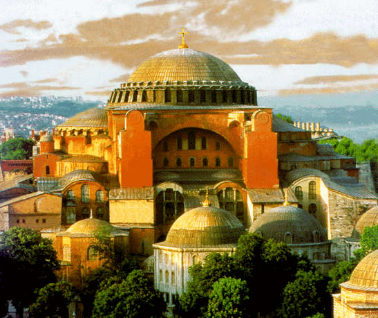
Secular Humanism
"The (secular) humanist system of values has now become the predominant way of thinking in most of the power centres of society" (James Dobson)
".... You shall be as God" (Genesis 3:5)
Secular humanism is the dominant world view in our schools, universities, media, business and government. It is subtle, such that people who nominally believe in Christian values can forfeit them without realising it. Secular humanism seeks to undermine all other beliefs, labelling them pejoratively as prejudiced uninformed, unacademic, unenlightened, anti-intellectual. In the West is seeks to slowly erase Christian language, history and influence. It seeks to appear "rational", logical, up-to-date, fair, balanced, and just, while keeping its agenda out of view of the public square. As a postmodern philosophy it recognises no absolutes but demands that people find out the answers for themselves, that they are comfortable with. It appeals to reason while seeking to erode traditional values and moralities, marriage, the home, ethics and belief. In the media and public policy it does not tolerate criticism; students and the public are expected to hear their leaders and educators uncritically. All it would take for an entire generation to lose faith, accept legal changes that entrench ways of life they do not believe in would be for secular humanism to be accepted at face value.
Secular human is a way (or ways; secularism is very much an individual matter - secularists often differ from each other) of looking at the world that emphasises the centrality of human beings - their nature and place in the universe. There are many varieties, both religious and non-religious. Humanism teaches that every person has dignity/worth and should command the respect of others. The underlying assumption is exclusion of God.
The study of humanity formed the intellectual core of the Renaissance (from around the mid-1400s). It is focused on the rediscovery of classical Greek and Roman literature and culture that taught that "man is the measure of all things", the ultimate norm, the ultimate being, the ultimate authority; reality and life centre on man.
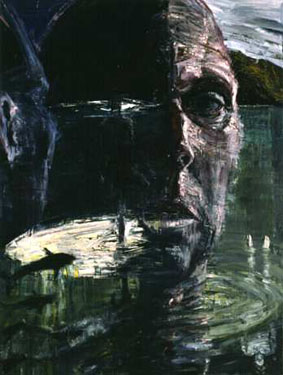
The scholars and artists of ancient Greece and Rome had emphasised the study of man. Classics had been unknown in Europe since the decline of the Roman Empire - largely preserved in what became the Muslim world and "rediscovered" in the West.
Ironically, most early humanists were religious. During the Renaissance their work gradually led away from the ascetic teachings of the Middle Ages that rejected this world and its pleasures.
Desiderius Erasmus (1466-1536) was a Dutch priest/scholar who sought to reform the church. Initially supported by Martin Luther and other leaders of the Protestant Reformation, he opposed corruption and dogmatism in the church. However, he believed in the unity of Christianity and refused to endorse a separate church.
Thomas More (1477-1535) was a devout English churchman. "Utopia", his best-known book, criticised the society of his day. He held high ideals for humanity. More was a friend of Erasmus.
Secular humanists in the Enlightenment (1680s-1780), or Age of Reason, urged a more robust recognition of the realities of human nature and human aspirations, with more of a focus on Man. They rejected the Biblical view of the sinful nature of humanity. Much of modern Western culture is anchored in a secular humanist world view.
Humanists were interested in the classics because they were "guides to the understanding of life". Scholars and artists gained inspiration from them. Architects began to design non-religious buildings, rather than cathedrals. Painters and sculptors began to depict (and glorify) the human body, people and their works. Scholars delighted in the study of pre-Christian authors - this has been a growing trend since the scholastic period in the Roman Catholic Church, and beyond.
Today, humanistic education centres on the humanities, which can include religion (as a cultural expression), philosophy (lit. "love of wisdom"), languages, literature, history and the arts. These subjects are good, but it is easy for them to focus on man, as such, and the meaning of life from a human perspective, entirely without God.
Check out the Humanist Manifestos I, II and III. Signatories believed they had the gauge of social thinking and sought to steer it.
Humanism emphasises that then natural world is all that there is to know, that insight/reason and revelation must be tested by wisdom; truth is discovered rationally; mankind is the only source of morals/values. The highest human achievement is to improve the human conditions. The future will be better if people proceed ethically/rationally.
While secular humanists are not usually organised into groups, what do they broadly believe? What are the implications of secular humanism?
God: "No deity will save us, we must save ourselves." There is no God, or gods. Science, scientific method, human development, freedom of/from religion have made God obsolete. The only things that matter are what we can touch, feel, prove, and study. Only that exists; it has always existed. There is no supernatural explanation for the existence of matter (nor is there a need for one).
Philosophy: The meaning of life is based in nature. That is all there is. The scientific method is the only way of knowing anything; all else is speculation or opinion. If something cannot be touched, observed or experimented on it does not exist. Since it is not possible to observe or conduct experiments on God, heaven, hell, the human mind or spirit, they do not exist.
Ethics: Humanists are relativists. Human beings are free to set standards and values. Science, reason, experience are sufficient guides for figure out the way we should live in any situation. There is no right, no wrong. Situational ethics are valid. Standards and values are relative. The Humanist Manifesto II states, "We affirm that moral values derive their source from human experience. Ethics is autonomous and situational, needing no theological or ideological sanction. Ethics stems from human need and interest,"
Biology: As taught by Darwinian evolution. Life just happened. At some time, life appeared from the primordial ooze, and through natural selection (from beneficial mutations) changed into plants, animals and man. Many secular humanists infer that science has proven the theory of evolution. Man is the most highly evolved of all creatures and is responsible for aiding the evolutionary process. However, many biologists believe that the theory of evolution is just a theory. Others draw a distinction between origins and evolution.
Psychology: Self-actualisation is what life is all about. Me and mine. Man is inherently good. Every individual can achieve mental and physical health through the fulfilment of physical or material needs. Man is only body; no soul, mind, spirit or conscience exist. Man's actions are simply the results of mechanical impulses (behaviourism). (Contradicts the notion that we are the masters of our own fate.)
Sociology: Civilisation and culture shape individuals. Man is "evil" because his culture and social environment are "evil". But there is nothing intrinsically evil. Society and culture influence man's actions and enhance or stifle his goodness. One of the most stifling institutions is the family. Government-sponsored education provides the most desirable method for abolishing out-dated social institutions and ensuring the development of a free society.
Law: The state is sovereign. It is entirely rational because there is no higher power. Just as man is the final work in ethics, the world state is the only source of legal truth. The social order is more responsible for crime than the individual is. After all, the criminal was good before society corrupted him. Over time, any deficiencies in the state will be improved by the goodness in every person.
Politics: World government, globalism are the highest goals. World government is the next logical step on man's evolutionary road to Utopia, since man is now conscious of his evolution and is responsible to direct it. A global state is the best way to achieve the humanist goal of world peace. The state, directed properly, plays a central role in guiding man. Julian Huxley: "To have any success-in fulfilling his destiny as the controller or agent of future evolution on earth, man must become one single inter-linking group with the one general framework of ideas.
Economics: Capitalism. Grab all you can; that is a sign of self-fulfilment and success. Socialism is an alternative. Man is an evolving creature who is (or will become) capable of planning the perfect economy. Man must "save himself"; he must be in total control of all aspects of his universe. The world's economic system must be strictly controlled through central planning. Government must be granted authority over man's economic affairs.
History: Human history "happens". There is no supernatural influence. The history of man and the universe is the history of evolutionary activity. Propelled without design by "natural; selection", history has moved in an upward direction from simplicity to complexity. Artificial intelligence, which is better than human effort, may be the best next step in historical evolution. Secular humanist thinking led to Liberalism.

Results of Secular Humanist Thinking
- judges everything on the basis of value in this present time: NOW generation
- sceptical about eternity; there is no god, no eternal; no need
- emphasis on man; man's ability and wisdom as the last word (anthropocentric rather than theocentric); self-centred people
- God has no place; God is dead; atheism is the only valid explanation
- ideas and rules about abortion, infanticide, and euthanasia are determined by man.
Christian views of Secular Humanism
- Hope-less because history has no beginning, no transcendent goal, no purpose; life is insignificant; leads to despair because "Man is a cosmic accident; he emerges from the slime by chance; he is a grown-up germ; moving to annihilation; there is no tomorrow; we come from nothing and go to nothing. Origin is meaningless, destiny is pointless. This leads to despair.
- Men and women know that life has to have meaning: "Why am I here" implies this, intuitively
- Left to his own devices, man cannot save himself; he cannot improve the wickedness of his heart
- Christ was concerned with this world - we should not attempt to escape the secular (cf monasteries, hermits, orders)
- We are nevertheless commanded by Christ to lay up treasures in heaven, because there is an eternity, a future, a hope
- Christians need to distinguish between secular and eternal, but not separate them.
Addressing the issues head on
Over coming weeks, we will turn to other world views that compete in the public square and seek to undermine Christian faith. Addressing the issues they raise will be a critical part of the evolution of this course.
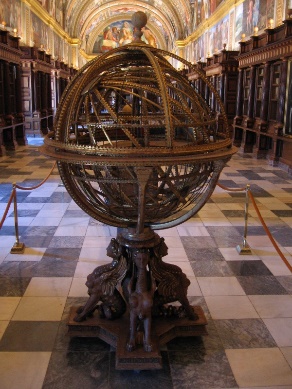
We will come back to many of these issues, from different angles. We will question common assumptions and patterns of belief. We will challenge some opinions and see how easy it is for Christians to think like the world. We will be reminded that the only way to succeed and not be sucked in by what a non-Christian society insists is truth is to "have the mind of Christ".








